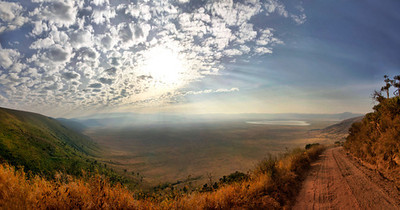Plug Into the Conservation Community for Content Galore
Posted: December 03, 2012
[caption id="attachment_11022" align="alignright" width="400"] © tr3gi - Fotolia.com[/caption]I recently attended the National Assembly of Sportsmen’s Caucuses conference, which is the largest gathering of pro-sportsmen legislators of the year. At that event, I got to mingle with state legislators from across the country, natural resource professionals and governmental affairs experts. With all that knowledge and passion for hunting, fishing, trapping and shooting, I felt like I was swimming in an ocean of content that I could spin into blogs, articles and social media posts.
© tr3gi - Fotolia.com[/caption]I recently attended the National Assembly of Sportsmen’s Caucuses conference, which is the largest gathering of pro-sportsmen legislators of the year. At that event, I got to mingle with state legislators from across the country, natural resource professionals and governmental affairs experts. With all that knowledge and passion for hunting, fishing, trapping and shooting, I felt like I was swimming in an ocean of content that I could spin into blogs, articles and social media posts.
[caption id="attachment_11022" align="alignright" width="400"] © tr3gi - Fotolia.com[/caption]I recently attended the National Assembly of Sportsmen’s Caucuses conference, which is the largest gathering of pro-sportsmen legislators of the year. At that event, I got to mingle with state legislators from across the country, natural resource professionals and governmental affairs experts. With all that knowledge and passion for hunting, fishing, trapping and shooting, I felt like I was swimming in an ocean of content that I could spin into blogs, articles and social media posts.
© tr3gi - Fotolia.com[/caption]I recently attended the National Assembly of Sportsmen’s Caucuses conference, which is the largest gathering of pro-sportsmen legislators of the year. At that event, I got to mingle with state legislators from across the country, natural resource professionals and governmental affairs experts. With all that knowledge and passion for hunting, fishing, trapping and shooting, I felt like I was swimming in an ocean of content that I could spin into blogs, articles and social media posts.
The Sportsmen’s Act of 2012 is a hot button issue now so while I was at the conference, I ferreted out several informed opinions about why it failed to pass the Senate. I heard an excellent presentation about efforts to close shooting ranges on BLM land out west, and updates about what can and is being done about it. There was a great discussion about making sure hunter education is keeping up with the times so we can introduce more people to safe, responsible hunting.
These is a huge need to make sure sportsmen and women understand how the political machinations that happen at their state capitals and on Capitol Hill can affect the future of hunting, fishing and target shooting. Skilled writers can bring these stories to life by covering the diversity of opinions about what needs to be done and the best way to do it. There are lots of possibilities: opinion pieces, interviews, Q&A formats, and straight news pieces based on expert input from both sides of an issue.
I encourage you to attend next year’s NASC conference. Make plans by contacting the Congressional Sportsmen’s Foundation’s communications coordinator Cole Henry at cole@sportsmenslink.org. If you can’t make the conference, be sure to check out their website at www.sportsmenslink.org for the latest news. Make sure you sign up for their newsletter, The Sportsmen’s Voice.
There are other resources to help you better understand and report on the issues. I’ve provided a few links to help you drill down to whatever natural resource topic you’re covering:
http://www.sportsmenslink.org/the-media-room/
http://www.wildlifemanagementinstitute.org/
http://www.fishwildlife.org/index.php?section=social-media (links to all state natural resource agencies)
http://www.mafwa.org/
http://www.wafwa.org/html/news.shtml
http://www.seafwa.org/news.php
http://www.neafwa.org/
http://www.ussportsmen.org/
http://www.wildlife.org/aggregator/sources/3
http://www.nraila.org/
http://www.nssf.org/NewsRoom/
http://www.archerytrade.org/news.html
http://www.kniferights.org/
http://www.treadlightly.org/page.php/news-pressrelease/Press-Release
Biz Tip Provided by Tammy Sapp – Business Development/Communications Director, Kalkomey Enterprises, Inc.